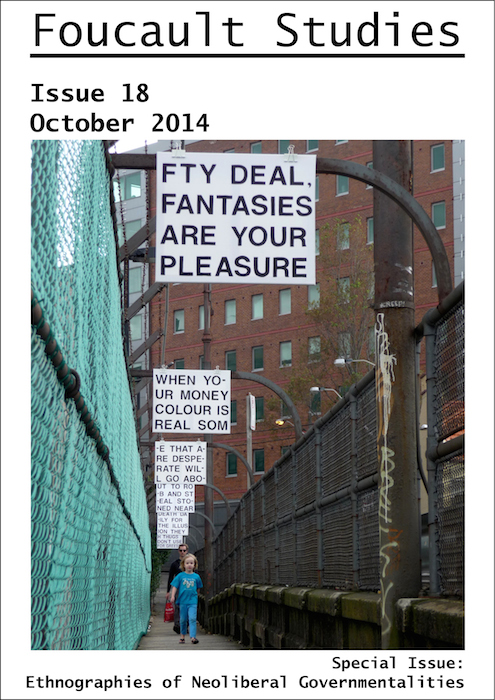Michel Foucault and Michael Oakeshott: The Virtuosity of Individuality
DOI:
https://doi.org/10.22439/fs.v0i18.4657Keywords:
Oakeshott, Foucault, Individuality, Basic Income, liberalismAbstract
In this paper, I reinterpret Michael Oakeshott’s idea of a liberal self through the conceptual framework of Foucault’s theory of the aesthetics of the self. Oakeshott believes that agents can create themselves as a “style” or a distinctive shape. This style is a “virtuosity,” an artistic achievement that is also an “excellence” in itself. Oakeshott’s liberal version of the aesthetics of the self is a new way to think about what Foucault’s argument might mean. Oakeshott’s theory is an internal challenge to liberalism insofar as liberalism is purportedly a theory of individuality and the unalienable worth of each person; but for Oakeshott, this individuality pertains to the agent gaining a distinctive style, sustaining “distinctness,” not achieving “distinction.” Oakeshott draws our attention to how distinctness is undermined by the forces of conformity and “normality” in existing liberal society. I also argue that the purportedly “radical” social policy of the basic income, which, while in tension with parts of Oakeshott’s theory, provides all citizens the opportunity to enjoy his particular idea of the self.Downloads
Published
2014-10-17
How to Cite
Segal, J. (2014). Michel Foucault and Michael Oakeshott: The Virtuosity of Individuality. Foucault Studies, (18), 154–172. https://doi.org/10.22439/fs.v0i18.4657
Issue
Section
Articles
License
Authors retain copyright to their work, but assign the right of the first publication to Foucault Studies. The work is subject to a CC BY-NC-ND 4.0 license, but despite these restrictions, authors can take for granted that Foucault Studies will permit articles published in Foucault Studies to be translated or reprinted in another format such as a book providing a full reference is made to Foucault Studies as the original place of publication.



